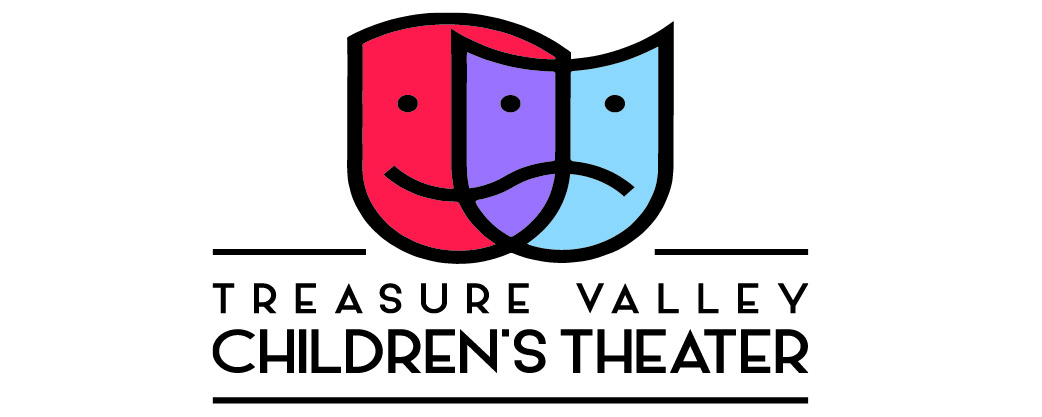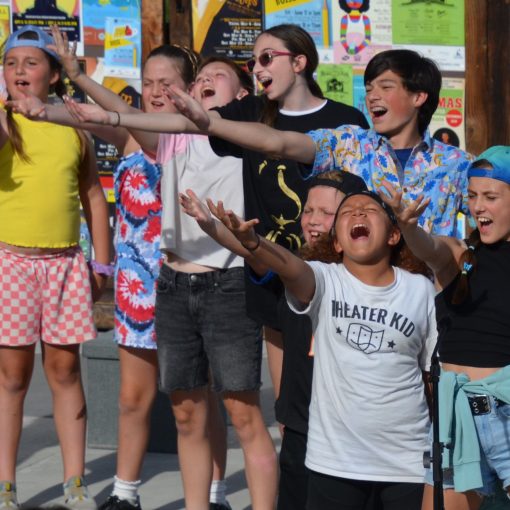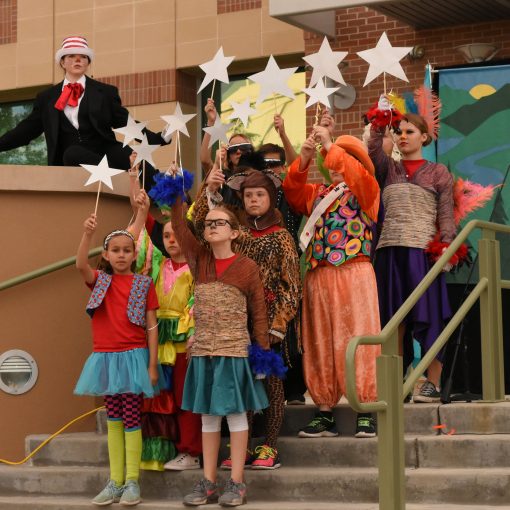It’s not a throw-away-role.
If you’re a theater teacher or director – especially if you’re working with kids – you hear it all the time:
I don’t have any lines?!
Or, even better, directly from the parent:
Well, she/he doesn’t have any lines so I don’t know why it matters if they miss rehearsal…
And thus begins my job to educate these well-meaning people about the value of Commitment and the Director’s artistic vision for the production. Here’s the bottom line: EVERY role is important to the production, the telling of the story, and the program.
At Treasure Valley Children’s Theater we believe in producing quality theater performances that entertain and engage audiences. With this mission in mind, we only cast actors (regardless of age) who are ready to help us achieve this goal.
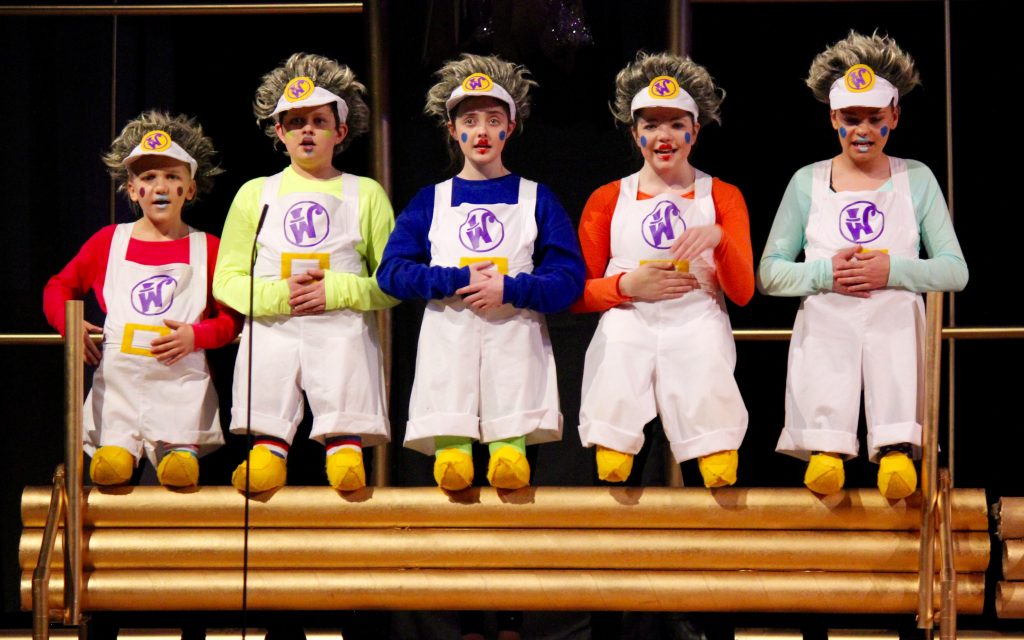
However, we also understand (intimately) the powerful and transformative skills a theater arts program can provide a young person. Therefore, we also cast – and make decisive role assignments – based on this understanding. And, believe me, ensemble roles are some of THE most important roles in a Treasure Valley Children’s Theater production. I’ll explain why in a moment, but first….
I want to acknowledge that there are theatrical programs designed to cast everyone who signs up – regardless of whether or not they have a “role.” There are programs that feature a chorus of hundreds just to fill their stage. And there are production companies that put the same actors in the leading roles show after show and surround that talent with whomever else agrees to the time commitment, regardless of qualification.
Let me be clear, these programs provide a service to their community, they provide an experience for volunteers, and they have a purpose. These are not the programs I am describing in my post. These are also not the programs Treasure Valley Children’s Theater produces.
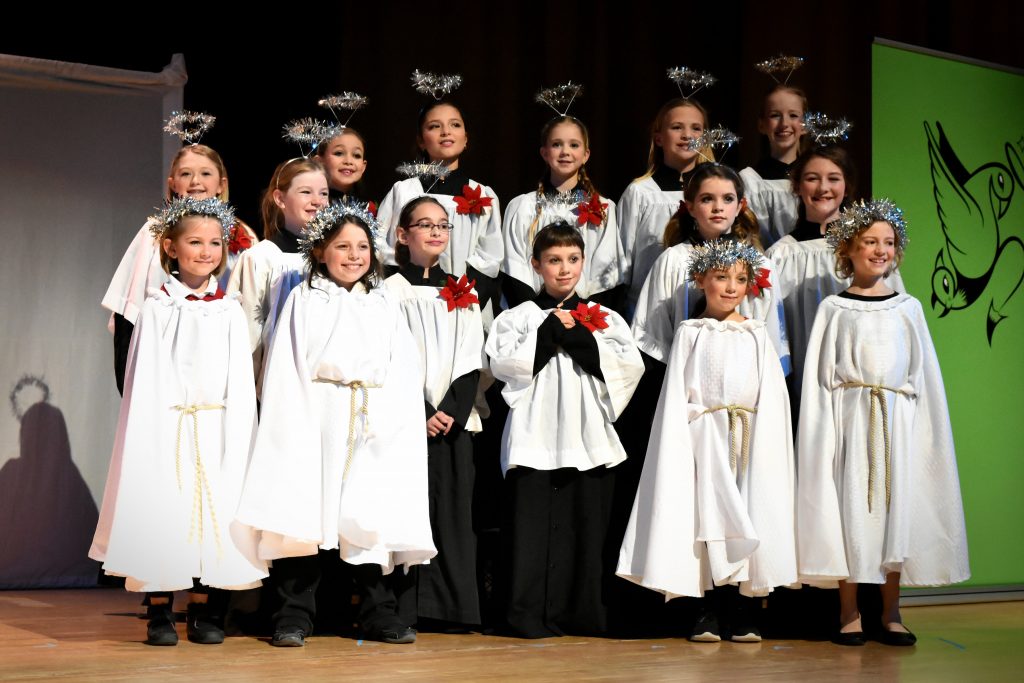
Most large-cast productions, specifically those written for young performers, are sprinkled with several smaller roles in addition to the central characters. It’s just the formula in which many published playwrights follow. And that’s great. But the Ensemble (also called the Chorus) is often central to these productions.
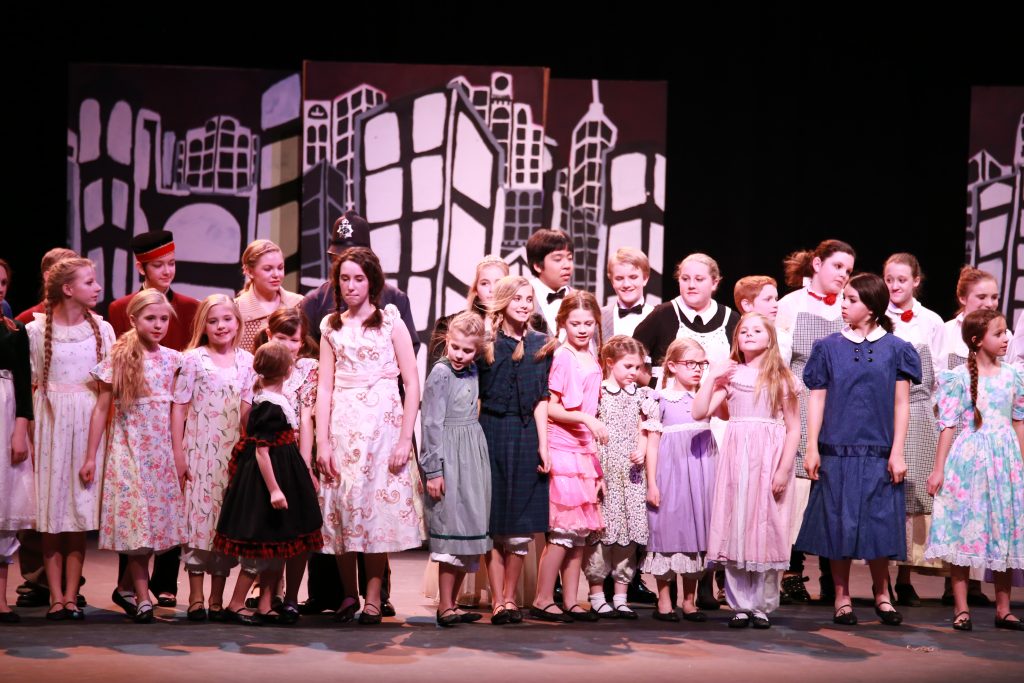
Imagine “Annie” without hundreds of orphans screaming It’s a hard knock life! Or “The Lion King” without the actors portraying the grasslands and creating the jungle?
When we produced “Aladdin, Jr.” we cast our strongest actors in Ensemble roles because we needed them to create the world of Agrabah; we had a very limited set budget and a HUGE stage to fill. Our most experienced actors, many of whom longed to be in title roles, found themselves as Agrabah citizens, golden dancers, Prince Ali Groupies, and whatever else we needed them to become. They not only got more stage time than Jasmine or Jafar or the Genie, but they learned an incredible life lesson in the value of working together to create something memorable. And they did.
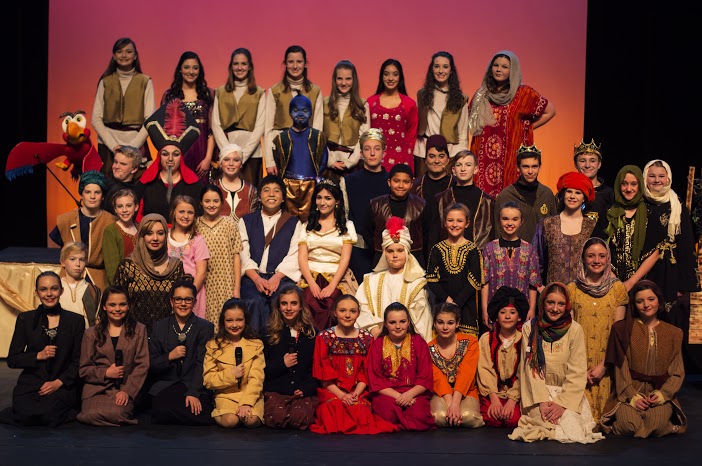
Our company just cast a production of “Shrek, Jr.” with nearly 90 kids auditing for 50 roles. After the difficult process of casting and contacting those that were cast to offer them roles, our directing team faced a frustrating moment while many young performers and parents declined roles because they were not “named” characters. This is, sadly, a common occurrence in our industry stemming from a lack of experience and knowledge of the Art. Young performers dream of reliving the roles they saw on the big screen (we discourage impersonation, by the way). Parents believe their child is the next big star – or, (more often), don’t really want to invest in a program that they believe will only feature their child once or twice on stage.

Hey, I get it. And I would MUCH rather have a student decline a role at the time of casting then get weeks in and have them walk. (A rarity at TVCT, by the way). But it’s frustrating nonetheless. Our directly team pours over casting for hours. They consider the needs of the role. They consider the availability of the young person being considered. And, if it’s a student we’ve seen before, they consider what would challenge and elevate the theatrical experience for that student. The Ensemble is as much a part of this difficult discussion and process as is the title roles. Without a strong Ensemble, your show is not good. It’s just not.

Bottom line, the Ensemble is not a throw away role. It’s an opportunity to really test your acting abilities. Most Ensemble roles require you to create more than one character. And to sing. And to dance. And to help create the world within which the story lives. Good Ensemble actors understand their job and they thrive. Actors cast in the Ensemble who bring a negative attitude will falter. And actors offered the opportunity to serve an Ensemble and decline, well, those actors are short-sighted and miss out on an opportunity to learn important life skills, build lasting friendships, and create memories that will last them a life time.
At least that’s the opinion of this theater founder who played far more Ensemble roles than lead roles in her youth, and who still LOVES the opportunity to support a show as a minor character or in the ensemble.
